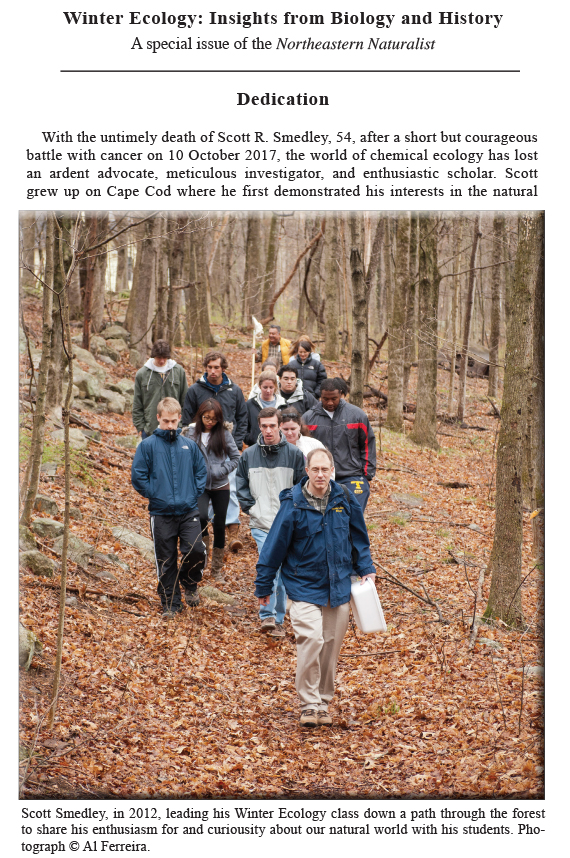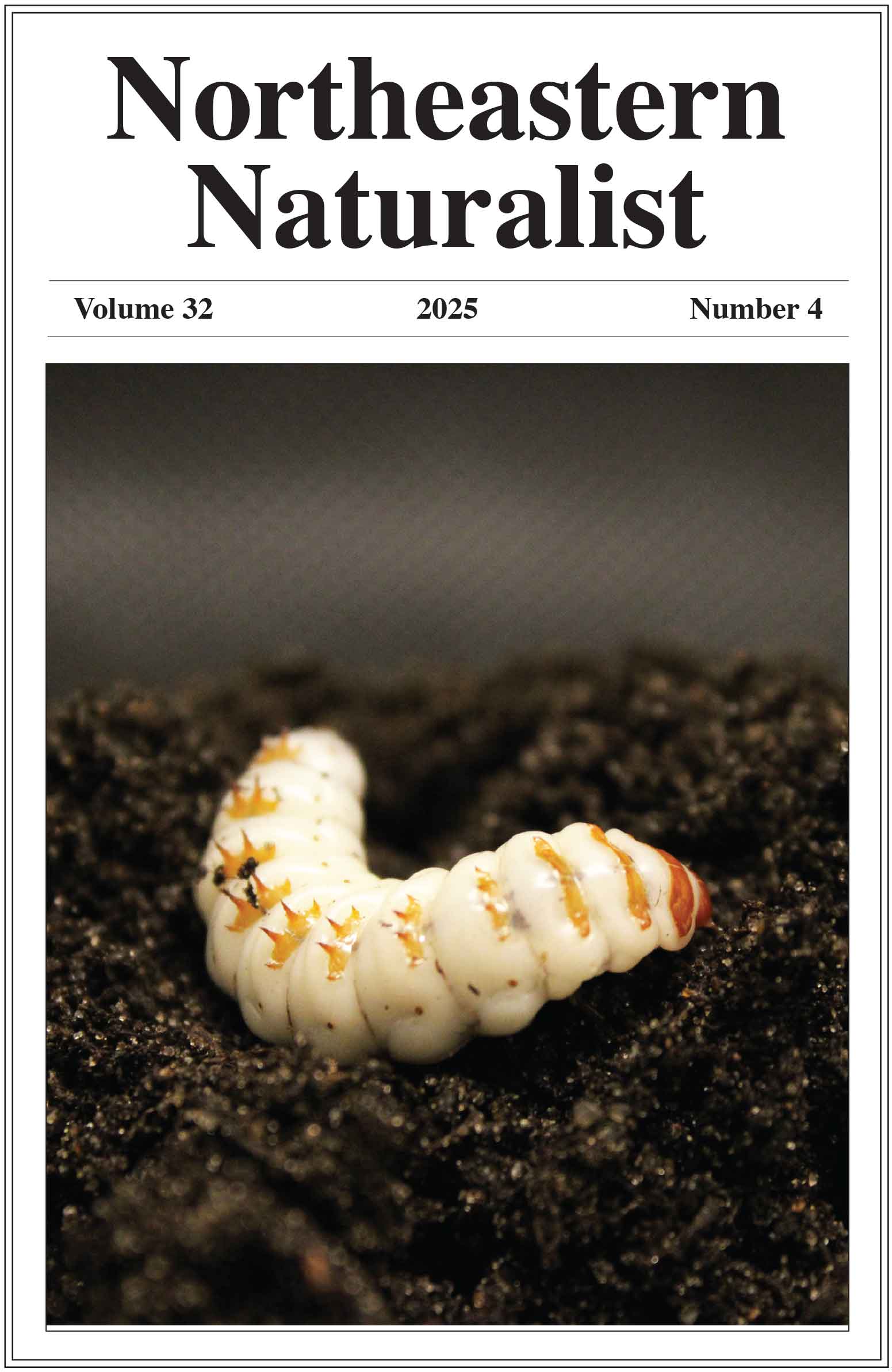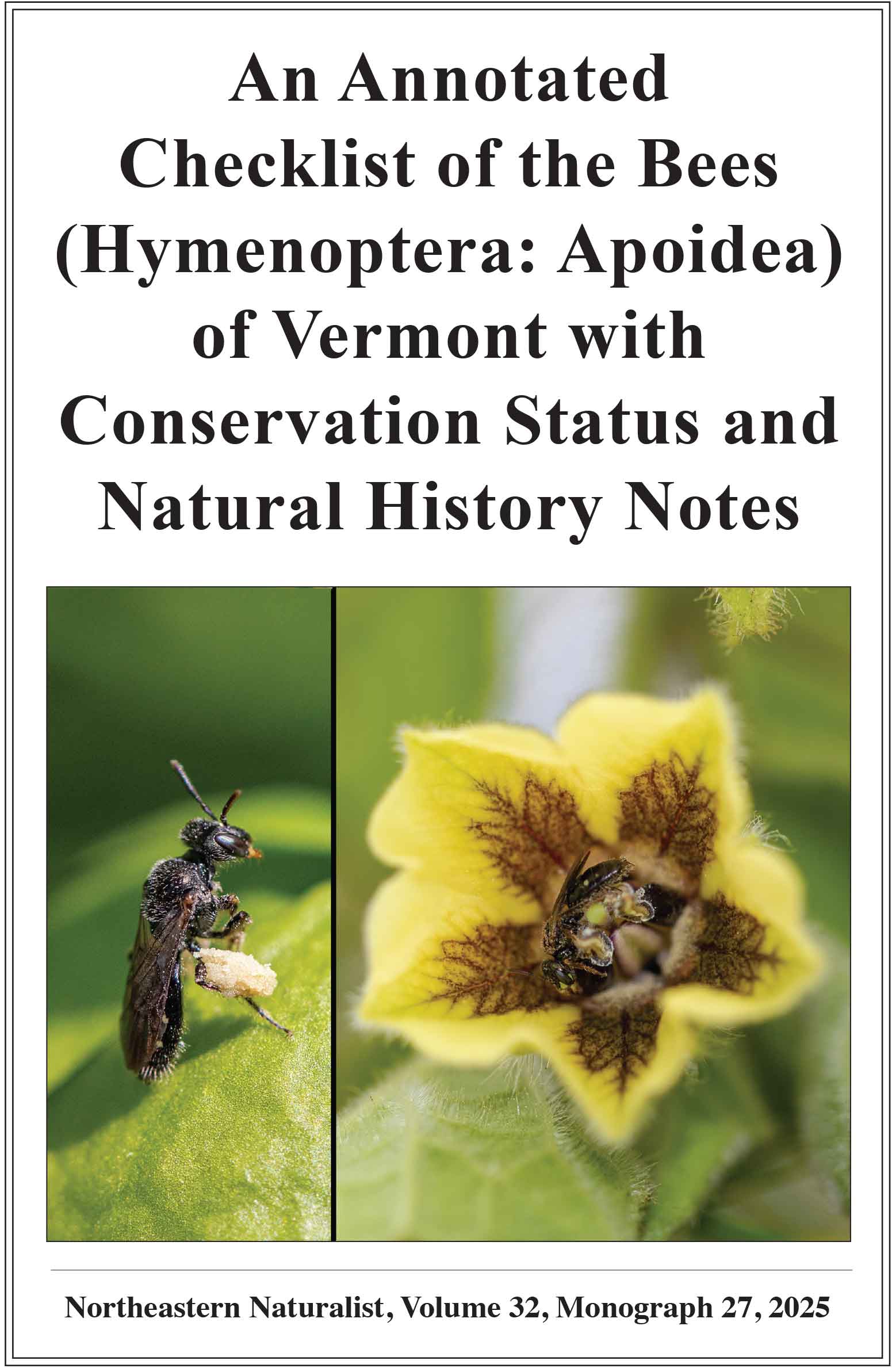Winter Ecology: Insights from Biology and History
A special issue of the Northeastern Naturalist
Dedication
With the untimely death of Scott R. Smedley, 54, after a short but courageous
battle with cancer on 10 October 2017, the world of chemical ecology has lost
an ardent advocate, meticulous investigator, and enthusiastic scholar. Scott
grew up on Cape Cod where he first demonstrated his interests in the natural
Scott Smedley, in 2012, leading his Winter Ecology class down a path through the forest
to share his enthusiasm for and curiousity about our natural world with his students. Photograph
© Al Ferreira.
Northeastern Naturalist
CW. Schneider
2017 Vol. 14, Special Issue 7
ii
world, including an early insect collection that he donated to a local natural history
museum. He attended Williams College in Williamstown, MA, graduating
with a B.A. cum laude in 1985. He earned his Ph.D. in chemical ecology from
Cornell University in Ithaca, NY, in 1993, followed by a postdoctoral fellowship
at the Cornell Institute for Research in Chemical Ecology. In 1997, Scott joined
the faculty as a Professor of Biology at Trinity College, Hartford, CT where
he served the last 2 decades. He was a careful and patient teacher/scholar who
loved to teach and involve students in the field and laboratory. Scott was tireless
and gave much of his time to students. Many of his research students published
with him papers investigating the role of novel biochemicals either sequestered
or synthesized by insects. Those privileged to have known Scott Smedley will
remember the humble person with a dry wit and eagerness to lend a helping
hand, a tireless worker and teacher devoted to his wife Melanie and children
Drew and Lydia. Colleagues in insect chemical ecology from throughout the
world will miss his gentle presence, steady influence, and analytical thinking.
They, like his colleagues and students at Trinity, have lost a passionate advocate
for insects and their chemical defenses as well as field ecology, season notwithstanding.
At the time of his death, Scott was putting the finishing touches on many
projects including this special issue of the Northeastern Naturalist with Tom
Wickman, a historian colleague at Trinity College. As it is now completed, we
dedicate this issue to him and honor his tireless efforts recruiting authors, encouraging
young researchers to contribute, editing manuscripts, and, of course,
writing a paper with his own undergraduate students for this special issue on
Winter Ecology. It is fitting that one of his last efforts was to promote the field
of winter ecology that he taught to hundreds of students who were taken into the
field in the dead of winter to “experience the beauty and mysteries of winter” as
Scott said in the preface, oft ignored in the biology curriculum. Scott devoted
his later years to the study of the winter firefly, Ellychnia corrusa, a species potentially
embracing winter to evade its summer predators. As a colleague at the
College, I speak for all who knew and worked with this gentle and compassionate
person, an energetic and engaging colleague and friend—he will be sorely
missed by us and generations of Trinity students who benefited from his careful
and deliberate guidance in the classroom, in the laboratory, and in the field.
Craig W. Schneider
Department of Biology,
Trinity College, Hartford, CT
craig.schneider.1@trincoll.edu.














 The Northeastern Naturalist is a peer-reviewed journal that covers all aspects of natural history within northeastern North America. We welcome research articles, summary review papers, and observational notes.
The Northeastern Naturalist is a peer-reviewed journal that covers all aspects of natural history within northeastern North America. We welcome research articles, summary review papers, and observational notes.